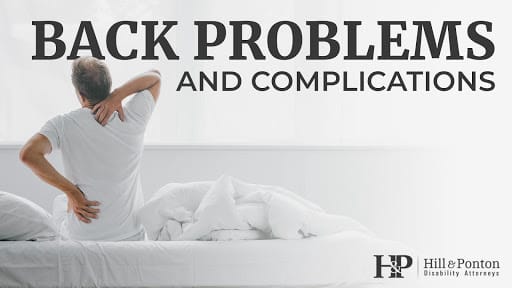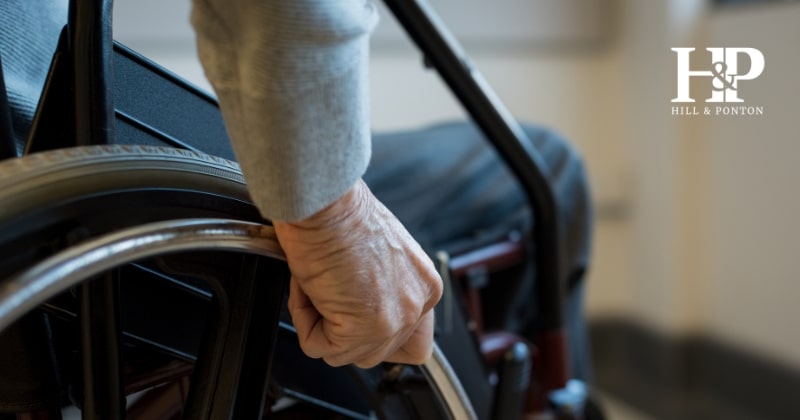A higher VA rating can provide greater financial stability to veterans, expanded benefits and recognition of service. Whether your condition has worsened, or you believe your initial rating was too low, here’s a guide to help you learn the best way to increase a VA disability rating.
When Can I Increase My VA Disability Rating?
You can request a rating increase whenever your service-connected condition worsens, or new symptoms emerge. It’s important to gather sufficient medical evidence to support your claim before filing.
Can the VA Automatically Increase Ratings?
In certain situations, the VA may automatically reevaluate your disability rating. However, this is often likely to result in a reduction. For instance:
- Routine Future Exams: If your condition is expected to improve, the VA may schedule a reevaluation.
- Reevaluations for Temporary Ratings: If your rating was granted as temporary (e.g., following surgery or hospitalization), it will be reassessed.
In most cases, you must initiate the process to request an increase.
When to File a New Claim vs. an Increase Claim
Determining whether to file a new claim or request an increase on an existing one depends on your unique circumstances. The right approach can ensure you receive the compensation and recognition you deserve.
- File a New Claim: When applying for a new service-connected condition not previously claimed. If you’ve developed a condition related to your military service but haven’t yet received recognition.
- File an Increase Claim: When seeking a higher rating for an already service-connected condition. If your current condition has worsened or your initial rating doesn’t accurately reflect your level of disability.
The key distinction is whether the condition is already recognized as service-connected. Carefully evaluate your medical records, consult with a Veterans Service Organization (VSO), or seek advice from a VA-accredited attorney to ensure you take the right steps for your situation.
How Do I Get My VA Disability Rating Increased?
Increasing your VA disability rating can feel like a daunting process, but understanding the available options can make all the difference. Whether you’re addressing worsening symptoms, secondary conditions, or newly recognized presumptive conditions, there are several pathways to ensure your rating reflects the true impact of your disabilities.
- File for an Increase on Existing Conditions: If your service-connected condition has worsened, gather updated medical records, file VA Form 21-526EZ, and attend a Compensation and Pension (C&P) exam.
- File for Secondary Conditions: Secondary conditions, such as depression caused by chronic pain or arthritis due to an altered gait, can also be service-connected. Provide medical evidence linking the secondary condition to your service-connected disability and submit supporting documentation. Learn more →
- Claim New Presumptive Conditions: If your condition is newly listed as a presumptive condition under laws like the PACT Act, you may file without proving direct service connection. Learn more →
- Understand VA Math and Combine Ratings for Maximum Benefit: The VA uses a formula, not simple addition, to combine disability ratings. To make this easier, use our VA Disability Ratings Calculator to estimate your total rating—it does all the work for you. Use the calculator →
- Apply for Individual Unemployability (TDIU): Veterans unable to work due to service-connected disabilities can receive compensation at the 100% rating level, even if their combined rating is below 100%. Submit VA Form 21-8940 to apply. Learn more →
How to File for a VA Rating Increase
- Collect Evidence: Gather updated medical records and any new documentation. This documentation needs to show how your condition has worsened since it was first rated.
- Complete VA Form 21-526EZ: File online through eBenefits or in person at a VA regional office.
- Consult a Veterans Service Organization (VSO): VSOs provide free assistance with claims.
- Submit the Claim: Double-check for completeness before submission.
Timing an Increase Request
Timing is essential when filing for a VA rating increase. Acting quickly and providing the necessary evidence can make a significant difference.
- File promptly if your condition worsens.
- Include recent diagnostic tests and physician’s notes.
- Avoid delays by ensuring all evidence is submitted up front.
Who Can Help with Getting a VA Disability Rating Increase?
Both VSOs and VA-accredited attorneys can provide critical support throughout the claims process but knowing when to work with each will optimize your results.
- Veterans Service Organizations: VSOs offer free assistance and are excellent for initial claims or straightforward cases. For example, if you need help gathering evidence or completing forms for a rating increase, a VSO can guide you through the process without any cost.
- VA-Accredited Attorneys: Attorneys are ideal for complex cases, appeals, or when facing claim denials. For instance, if you’re appealing a decision to the Board of Veterans’ Appeals or need representation for Total Disability based on Individual Unemployability (TDIU), an attorney can provide the expertise and advocacy needed.
Leveraging the right resource at the right time can make navigating the VA system much easier and improve your chances of a favorable outcome.
What Happens After Requesting an Increase?
Filing for a VA disability rating increase is just the first step. Understanding what comes next can help you navigate the process with confidence and be prepared for any challenges along the way.
What to Expect
After submitting your request for a rating increase, the VA will initiate a detailed review of your case. Here’s what typically happens:
- Review of Evidence: The VA examines all the documentation you’ve provided, including medical records, test results, and supporting statements. Thorough and complete evidence can speed up this process.
- C&P Exam: In many cases, the VA schedules a Compensation & Pension (C&P) exam to assess your condition. During the exam, you’ll need to explain how your condition has worsened and how it impacts your daily life. Being honest and specific about your symptoms is crucial.
The VA’s decision-making process can take several months. The complexity of your claim and the volume of evidence provided can influence how long it takes. Patience is key, but you can monitor the status of your claim through eBenefits or by contacting your VA regional office.
Appeal Options if Denied
If your request is denied or the increase granted isn’t sufficient, don’t lose hope. There are several options available to challenge the decision:
- Supplemental Claim: Submit new and relevant evidence that wasn’t included in your original claim. This gives the VA another opportunity to reevaluate your case.
- Higher-Level Review: Request a senior VA adjudicator to review your claim without submitting new evidence. This is a good option if you believe the VA overlooked critical information or made an error.
- Board of Veterans’ Appeals: For more complex cases, you can appeal directly to the Board. Depending on your preference, you can submit additional evidence, request a hearing, or rely on the existing record.
For a detailed walkthrough of these appeal options and how to navigate the process effectively, check out our comprehensive appeals guide. Learn more →
How Increasing Your VA Disability Rating Will Help You
Getting a higher disability rating can significantly improve your quality of life. A VA rating increase means:
- Increased monthly compensation.
- Access to additional benefits like Special Monthly Compensation (SMC).
- Recognition of the true impact of your service-connected conditions.
Need Assistance? Contact Us
At Hill & Ponton, we’ve helped veterans nationwide secure the benefits they deserve since 1986. If you’re facing a denial or seeking a rating increase, contact us today for a free case evaluation and let us fight for you.




